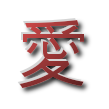The Maternal Line by Kawano Yuko
Translated by Amelia Fielden & Saeko Ogi
Modern English Tanka Press ©2011
ISBN 978-193539823-3
A review by Robert D. Wilson
This book of tanka, Kawano Yuko’s 13th collection of tanka, is the final chapter in this prolific and talented Japanese poet’s life. She passed away last year on August 12, 2010, from cancer. At risk of writing a review that mimes an obituary, I’ve opted to omit a synopsis of her 40 year career as a poet. Her poetry speaks for themselves.
in that moon
slowly crossing the sky
is the scent
of moon --- facing it,
I inhale
Yuko’s tanka have an unusual cadence, reminiscent of Shotetsu’s, her choice of words, her understanding of the variances in tone created by the rising and falling of sounds made with letters, and words, uncanny . . . incoming waves, rolling, rising, building, reaching, until each wave makes its final grasp, culminating in a resonant low note in the key of C.
Nature is important to Yuko, and never used lightly. It’s evident in her poetry that nature is not the nature defined in Japanese universities which have adopted the German-based university system; nature as interpreted from a Anglo-Western mindset. Hers is the nature that Basho and others saw, felt, heard, and heeded during their lifetimes: the zoka, nature’s unbridled, unpredictable, creative power.
She observes nature with an empty mind, letting the moon speak to her intimately with voices emanating from her body’s five senses. She and the moon become one, something the Western mindset has trouble explaining, let alone believing. Imagine what would happen if a policeman saw your car stopped beside a country road. He gets out of his cruiser and inquires: “Why are you parked? What are you doing?” You answer him with: “I’m fine, officer. I am one with the moon, conversing with her, seeing through her eyes.” “Step slowly out of the car with your hands up where I can see them!”
in that moon
slowly crossing the sky
is the scent
the scent of the moon . . . is the voice of one communicating with the moon
of moon . . . facing it,
I inhale the poet inhales the moon’s scent. It’s as if she knew she
would die at a young age, and has come to terms with this
natural course, and welcomes the path ahead. Yugen and
makoto are used adeptly here to create a poem that invokes
the reader’s involvement as the tanka’s interpreter. Is
Kawano’s poem a metaphor, an allegory, or . . . the magic
of a great poet’s tanka?
this bird-shaped kite
seems to ride on the wind . . .
it becomes a dot
high in the sky
ceasing to move
Most of us have flown kites as children. If we were lucky,
our kites would soar high into the sky until it was a mere dot
on its way to a world we could only ponder . . .
. . . ceasing to move . . .the place where ma exists . . .
timeless . . . the eye of zoka . . . a still-life in a now without
the what if. Is the kite a metaphor for her beloved mother
who died from cancer, or for the poet herself as she soars
upward past the kites into the ultimate aha?
beside my pillow
a great owl crouches
saying
‘you were once
a fine young lady, but . . .’
I love Kawano’s use of imagery and personification in this
tanka, a scene some Anglo-Western poets would say is not
acceptable in English tanka. A great owl crouches beside the
poet’s pillow and talks to the poet in her sleep. The imagery
as it’s used, tells me Kawano’s tanka is a metaphor.
‘you were once a fine young lady, but . . . ‘ Perhaps the owl
is representative of her inner self, telling her she’s getting
closer to death, that soon the pain from cancer and
chemotherapy will be gone, that it’s time to prepare for the
inevitable . . . one’s life a journey, unpredictable, returning to
the soil it rose up from, in the bosom of the great clod talked
about in the Zhuangzi.
A tanka written from Kawano Yuko’s death bed and published on August 10, 2010:
flinging open
the leaf-like doors
to my ward,
here comes my daughter
at half past ten
The poet passed away at midnight on August 12, 2010.
The Anglo-English speaking world are enriched and blessed to have access to Kawano Yuko’s tanka due to the skilled translations by Amelia Fielden and Saeko Ogi, who were Kawano Yuko’s friends.


